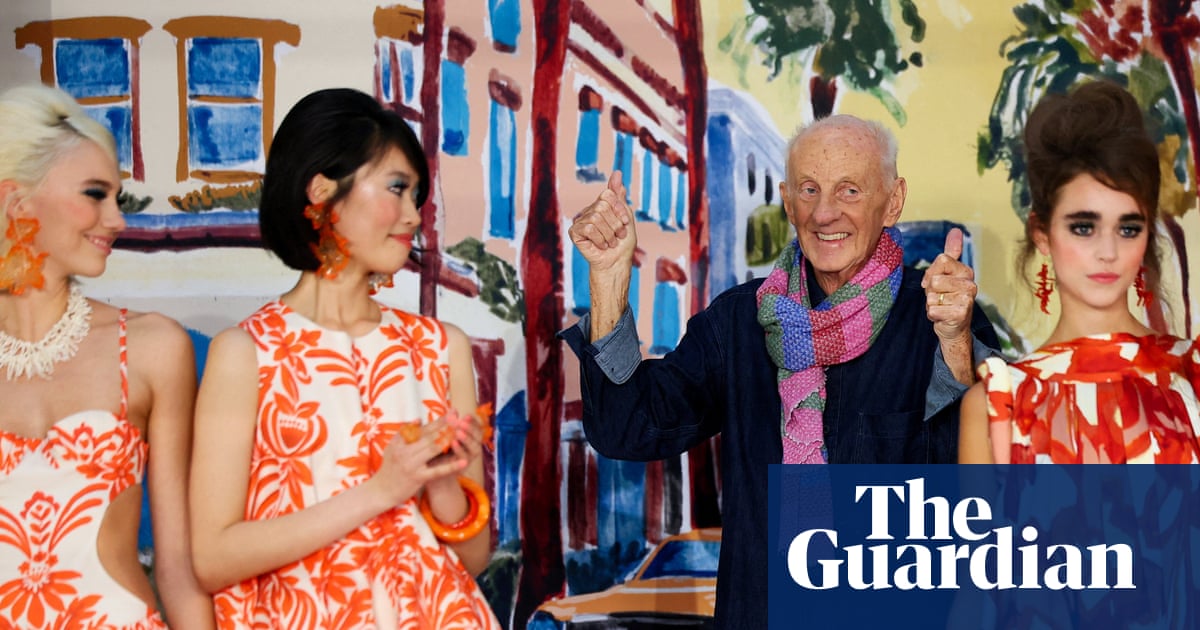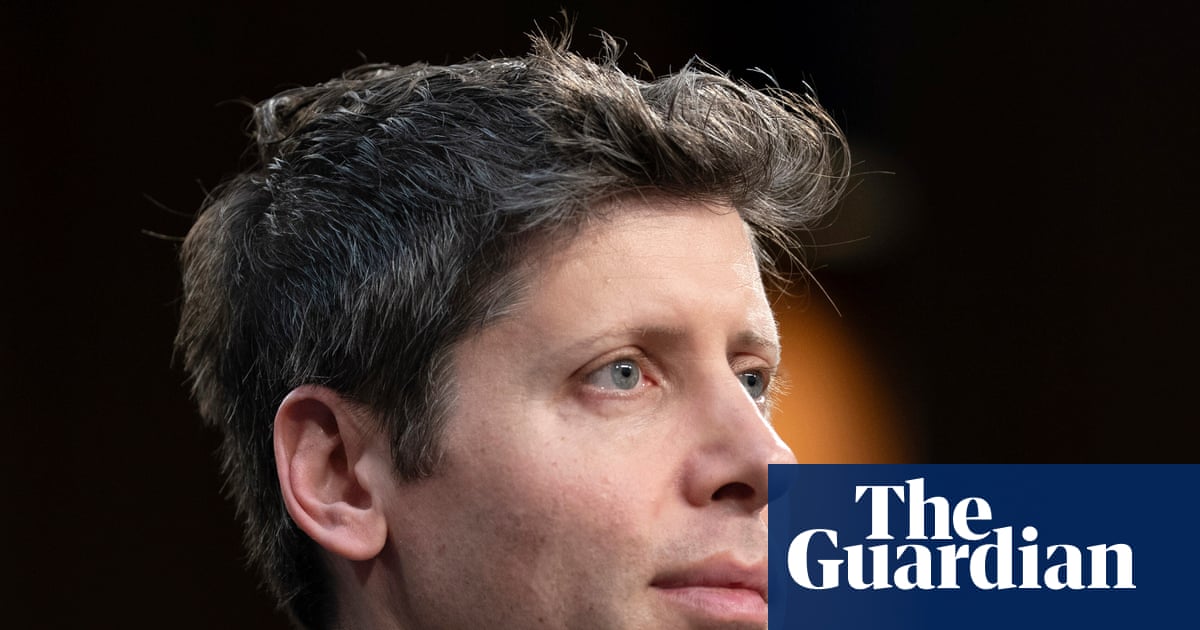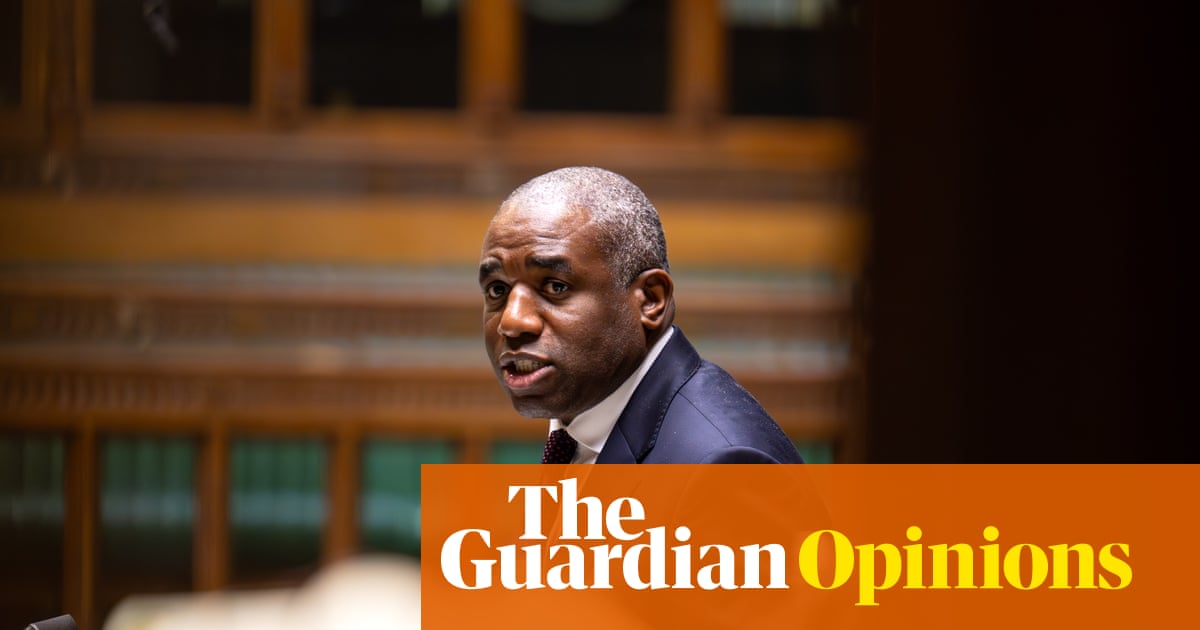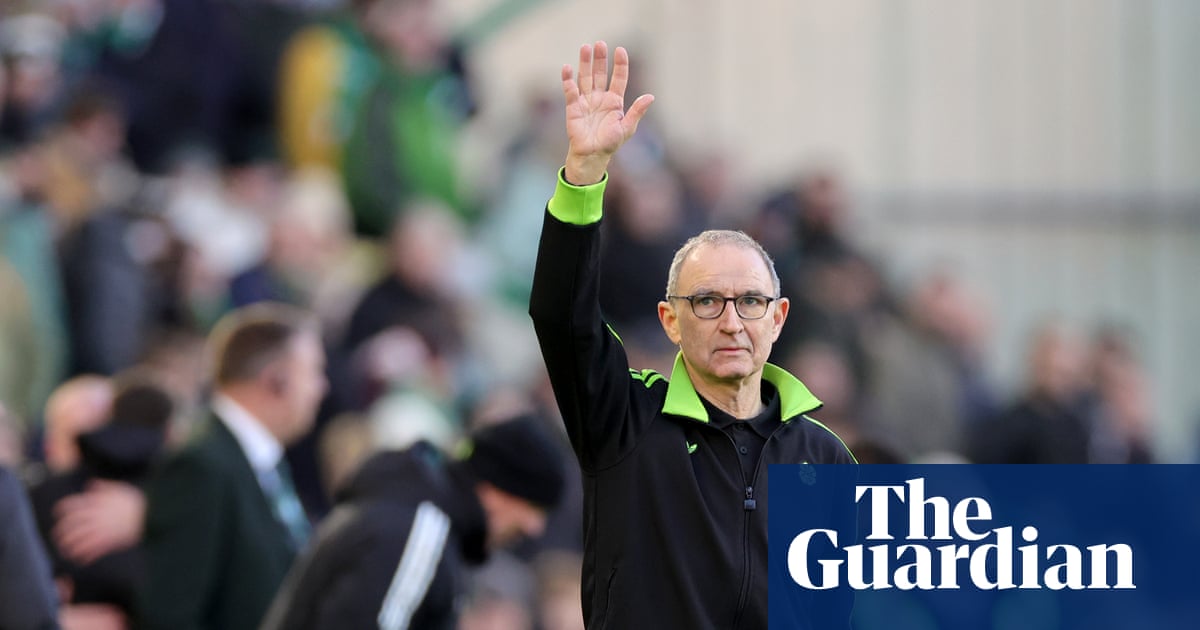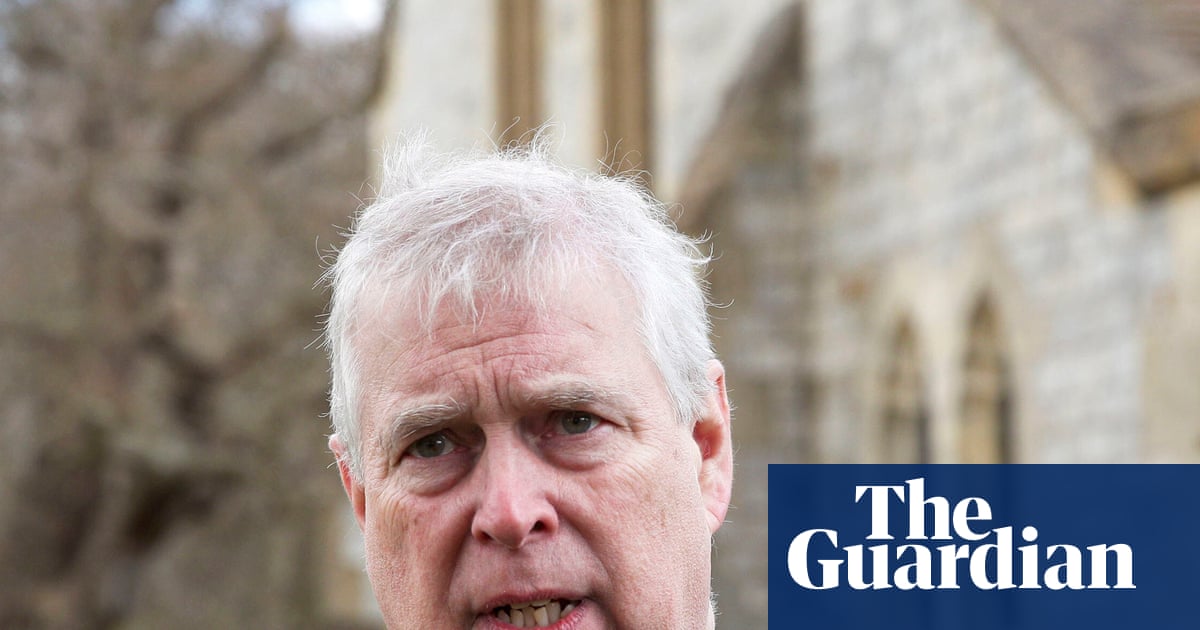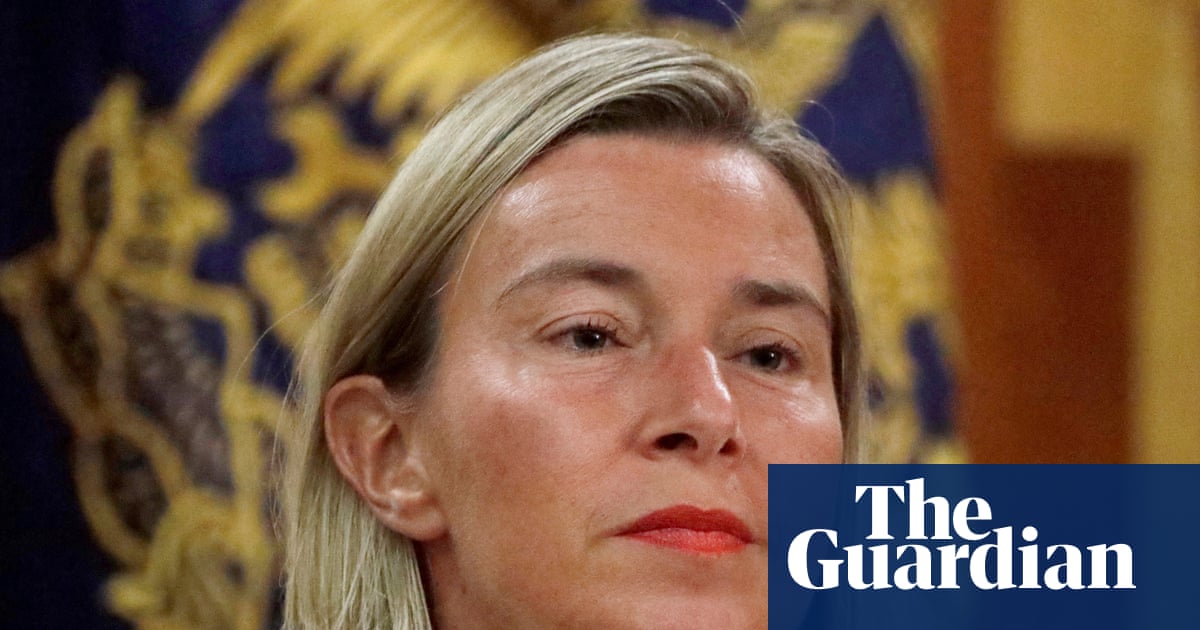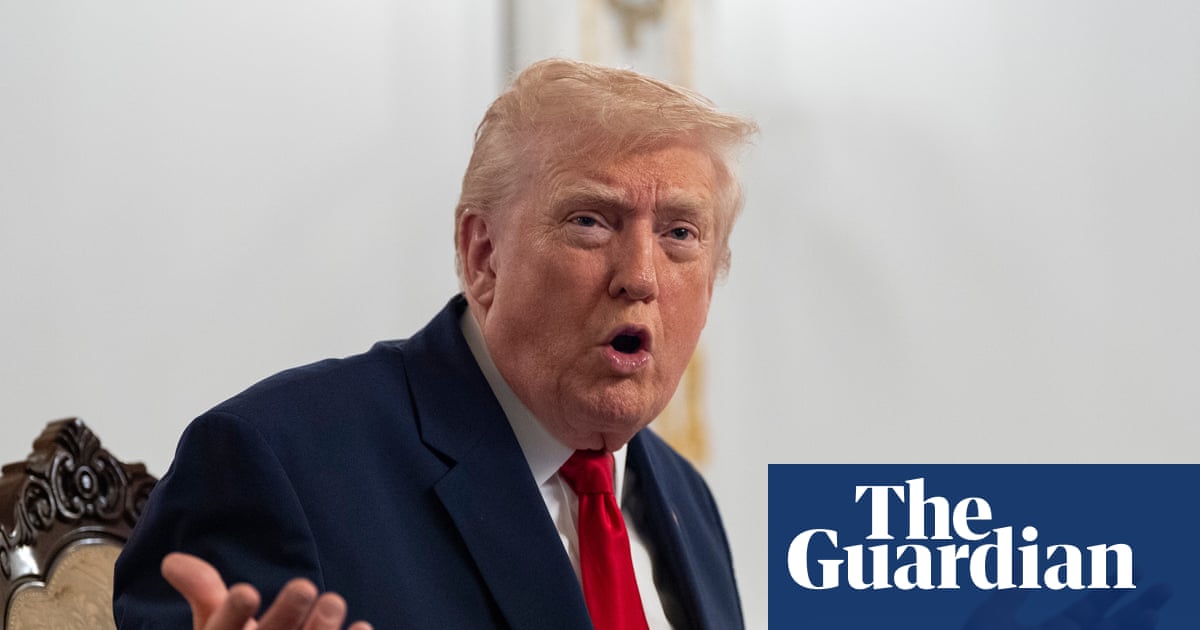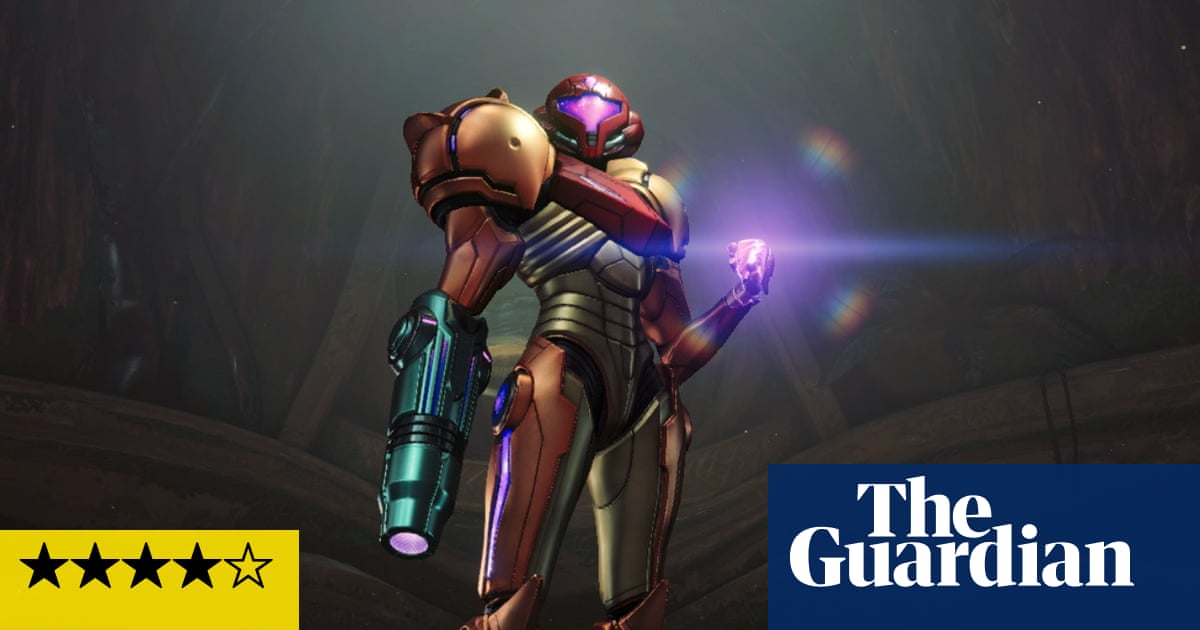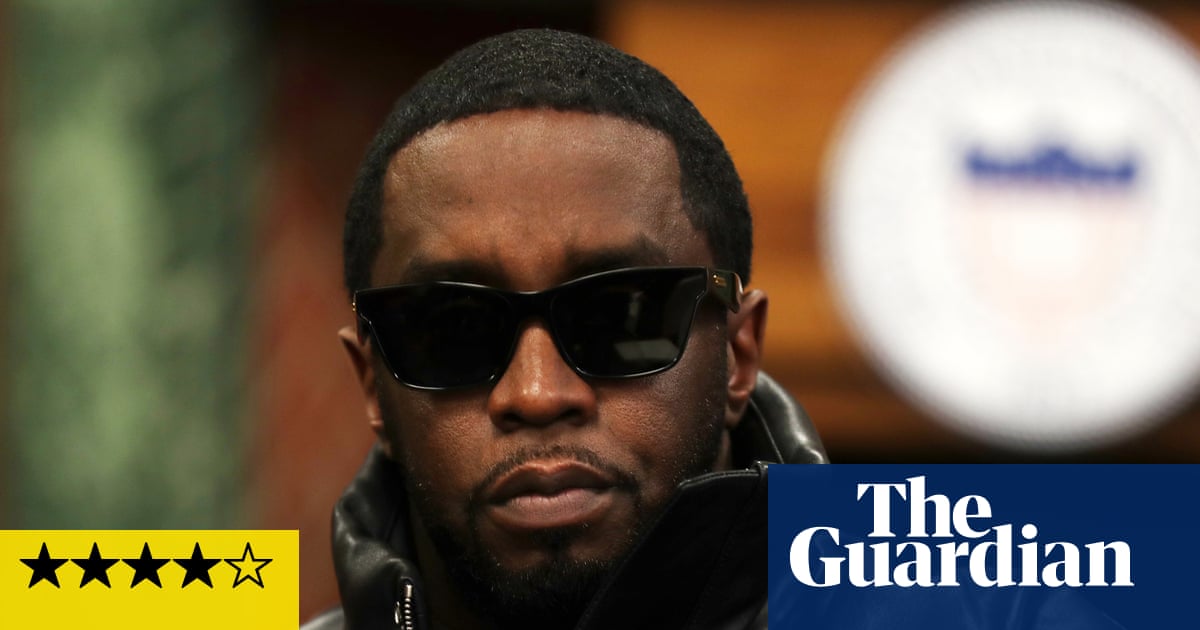Reaching the pinnacle of any sport might be considered a moment to savour and reflect. To luxuriate even, in the contentment so sparingly yielded at the highest level. None of which, strikingly, is the case for Laurent Mekies, the new team principal of Red Bull, who concedes only to an overwhelming, almost Sisyphean, commitment to moving ever forward, ever upward.
“There is no such thing as having made it, you always feel you are surviving,” he says. “You always feel that you should have done more yesterday, more a week ago. To step up next week, next month. You never feel you made it – never, never, never.”
The Frenchman leads one of one of the most successful teams in Formula One’s modern era, a role he took on two months ago after the former team principal Christian Horner was sacked. It is one of the most high-profile and high-intensity positions in the sport, what might be considered a herculean task for the 48-year-old to go with his own self-imposed boulder rolling.
At the last round in Monza, Max Verstappen took Red Bull’s first GP victory under Mekies, his first major achievement with the team duly ticked off as they go into this weekend’s Azerbaijan Grand Prix. With over 20 years in the sport there must have been similar occasions when he could allow himself a sense of satisfaction?
“If you feel you made it, you feel like that on the evening of a win. Then on Monday morning, it’s over,” is as much as he will allow.
Mekies is a fascinating character, at ease in the Red Bull motorhome for his first full interview with any British media since he took over from Horner in July. Notably he chooses to sit alongside me, rather than behind the desk in his office.
There is a palpable sense he feels the need to communicate earnestly and honestly. His answers are not rehearsed but thoughtful, with the careful precision that might be expected of a man from an engineering background. He is clearly interested in a desire to connect, a distance from the more businesslike approaches of some of his contemporaries. He will lean in almost intimately to make a point, occasionally touching my arm to emphasise, to ensure he is being understood.
Perhaps this desire to connect is what he is now bringing to Red Bull and while adamant in his determination to keep striving, he is also pleasingly human enough to know he has one hell of a gig.
“When I go to the pit wall, every single race weekend you feel the most privileged. You know you have the best seat in the house,” he says. “I’m excited. I can’t wait to get the car ready to go, I’m like a kid, just sitting with Max, I just want to see the car running. So you see the contrast between the two? You never feel you made it, but you always feel privileged.”
The kid, who never believed he would make it to F1 then, is still peering out through the man’s eyes. “I was just a little boy playing with his cars, watching the races with my father,” he says of growing up in France. “The first race my parents took me to was in 1988 at the French Grand Prix. It was in the heat of the Prost-Senna battle. You get submerged by that atmosphere that feels like it’s the most fantastic sport in the world but it feels so far away.
“You don’t think you will be ever entering a paddock, let alone work in Formula One.”
Yet he was far from deterred. Mekies studied mechanical engineering at the ESTACA school in France before gaining an internship with the Signatech F3 team, a moment he describes as “life-changing”.
He went on to enter F1 with Arrows in 2001, stints at Minardi and Toro Rosso followed before he became safety director at the FIA in 2014, the year Jules Bianchi suffered injuries in an accident at Suzuka that proved fatal nine months later.
Mekies was at the helm in the difficult years that followed as the sport’s governing body oversaw the introduction of the halo cockpit protection device. He noted, with typical determination given the opposition to it at the time, that there could be no room for complacency in safety.
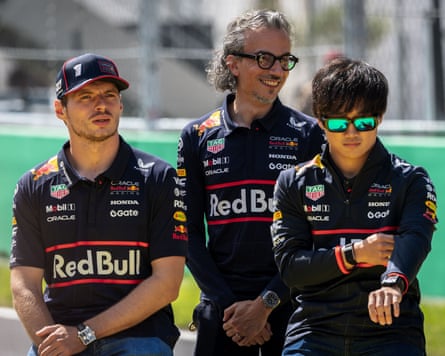
Ferrari brought him on board in 2018 and he became racing director in 2021 before Red Bull headhunted him to return to their sister team, now known as Racing Bulls, as team principal in 2024.
There he was witness to the turmoil that went on to embroil Red Bull that season. The controversy that surrounded Horner after accusations of inappropriate behaviour by an employee – for which he was later cleared by an investigation – was followed by the loss of a number of key personnel, including the design guru Adrian Newey.
after newsletter promotion
All of which was accompanied by a decline in form of the car, a power struggle between Horner and Red Bull’s parent company, all but open hostility from Verstappen’s father, Jos, and fears that the team might lose their four-time champion which were considered to have been a factor in Horner’s dismissal.
The Verstappens, their manager Raymond Vermeulen, and the motorsport adviser Helmut Marko remain a powerful faction within Red Bull. Mekies will have no easy pass from them and that too is part of his challenge. Here he offers a straightforward, if necessarily diplomatic, solution.
“I’d like to oversimplify the situation. We are here to conceive, to design, to produce the fastest car possible,” he says. “When you do that, everything gets sorted. So that’s where the focus goes, not in terms of: ‘Do I need to manage that? … or that?’.
“Max is a huge asset in the car, he’s a huge asset outside of the car. He’s part of the project, he’s not judging the project from outside, he’s pulling the project every day from inside.”
Certainly in these early days Mekies is winning hearts and minds, earning praise from the world champion and Marko.
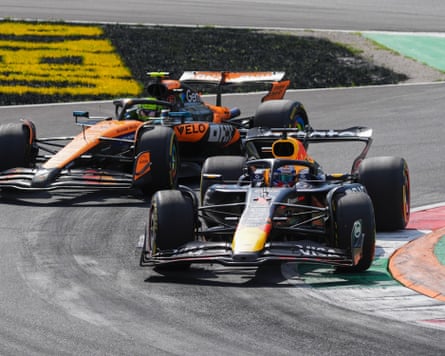
“What I like is the technical questions throughout the weekend, back at the factory, useful meetings. It seems like that’s all working well,” said Max Verstappen.
“The whole technical team is more open and they discuss things,” Marko said. “Appointing him was the right decision. Given the complexity of F1, having a technical expert at the top is probably the better solution.”Mekies is also seemingly less inclined towards the somewhat adversarial approach of Horner, who revelled in rubbing up against other teams and bosses. Yet Horner also inspired great loyalty and was much loved by many at the team. His dismissal after 20 years in charge was both shocking and upsetting for many staff. How Mekies dealt with that moment of upheaval is instructive.
“‘Why are we changing? Why now?’ were all questions I didn’t have an answer to,” he says. “So I told them exactly as I’m telling you now. The why and the why now are not questions for me. I don’t have the answer to them. There is no other way than to be honest. My focus is on the future and the next phase.
“Of course it is the biggest challenge. But if I go back, the one before was the previous biggest, and the one before was the previous biggest. There is only one objective we have been given, to go back to winning and to do it the Red Bull way. That’s the only brief.”

.png) 2 months ago
55
2 months ago
55



